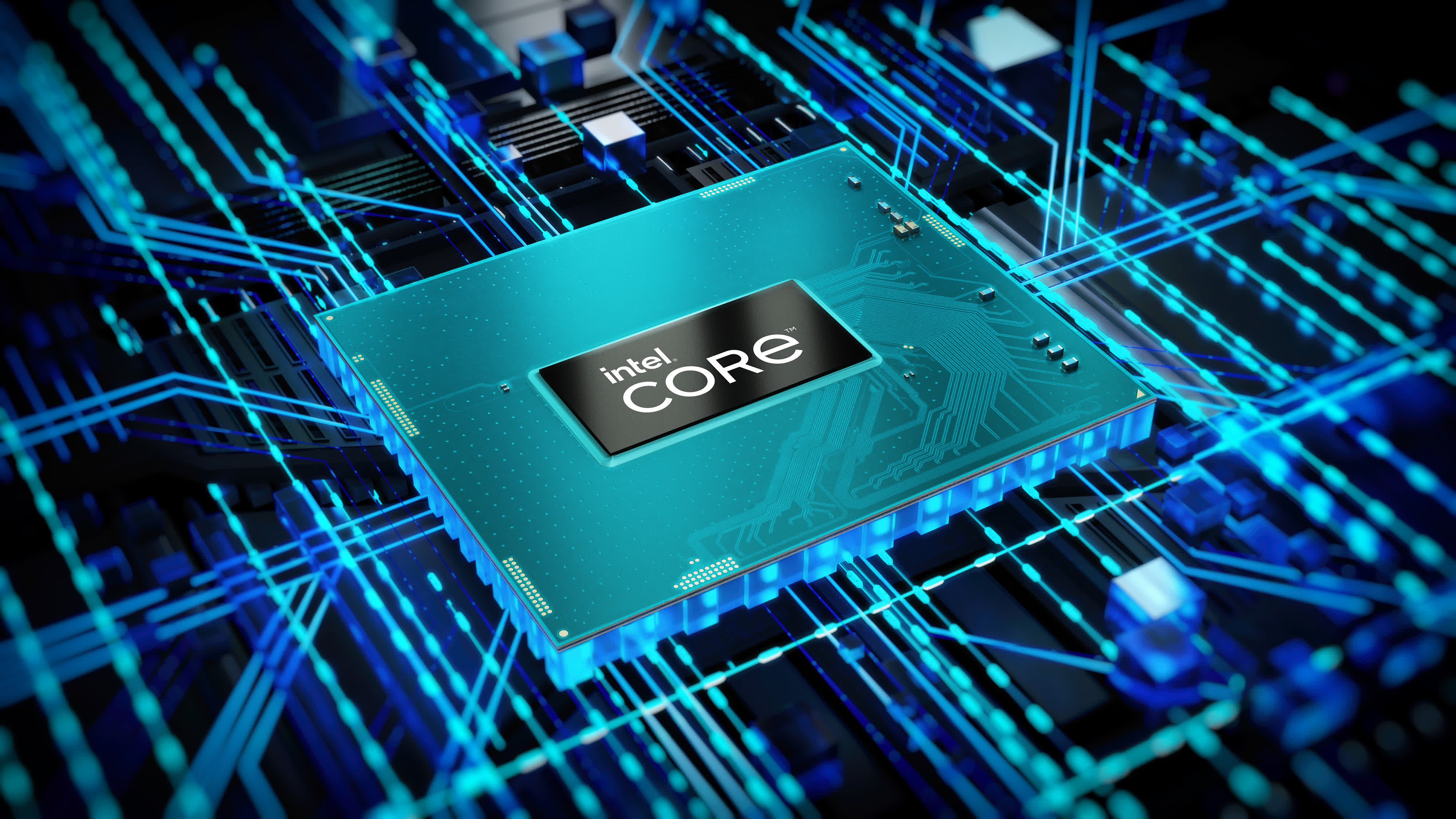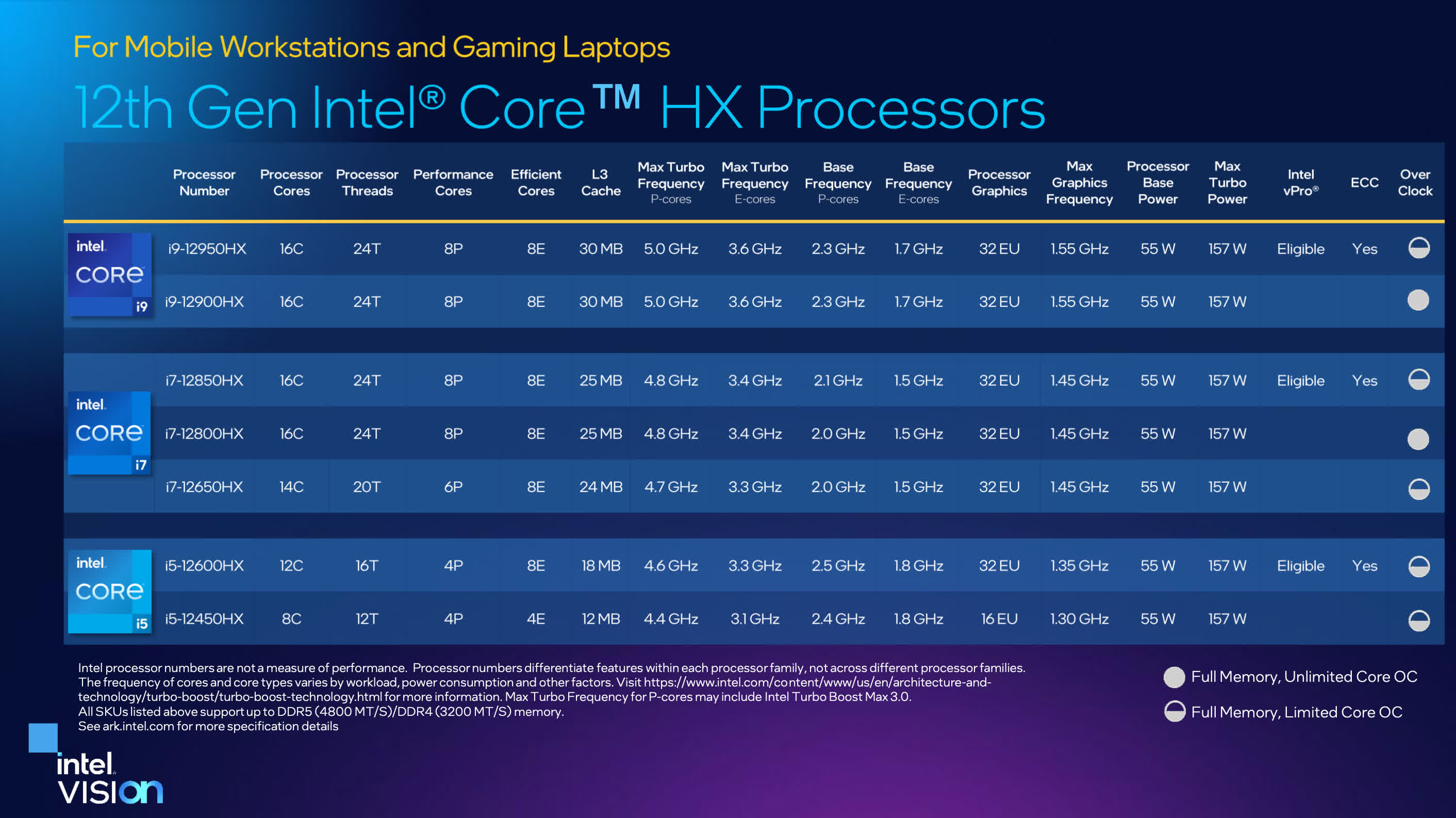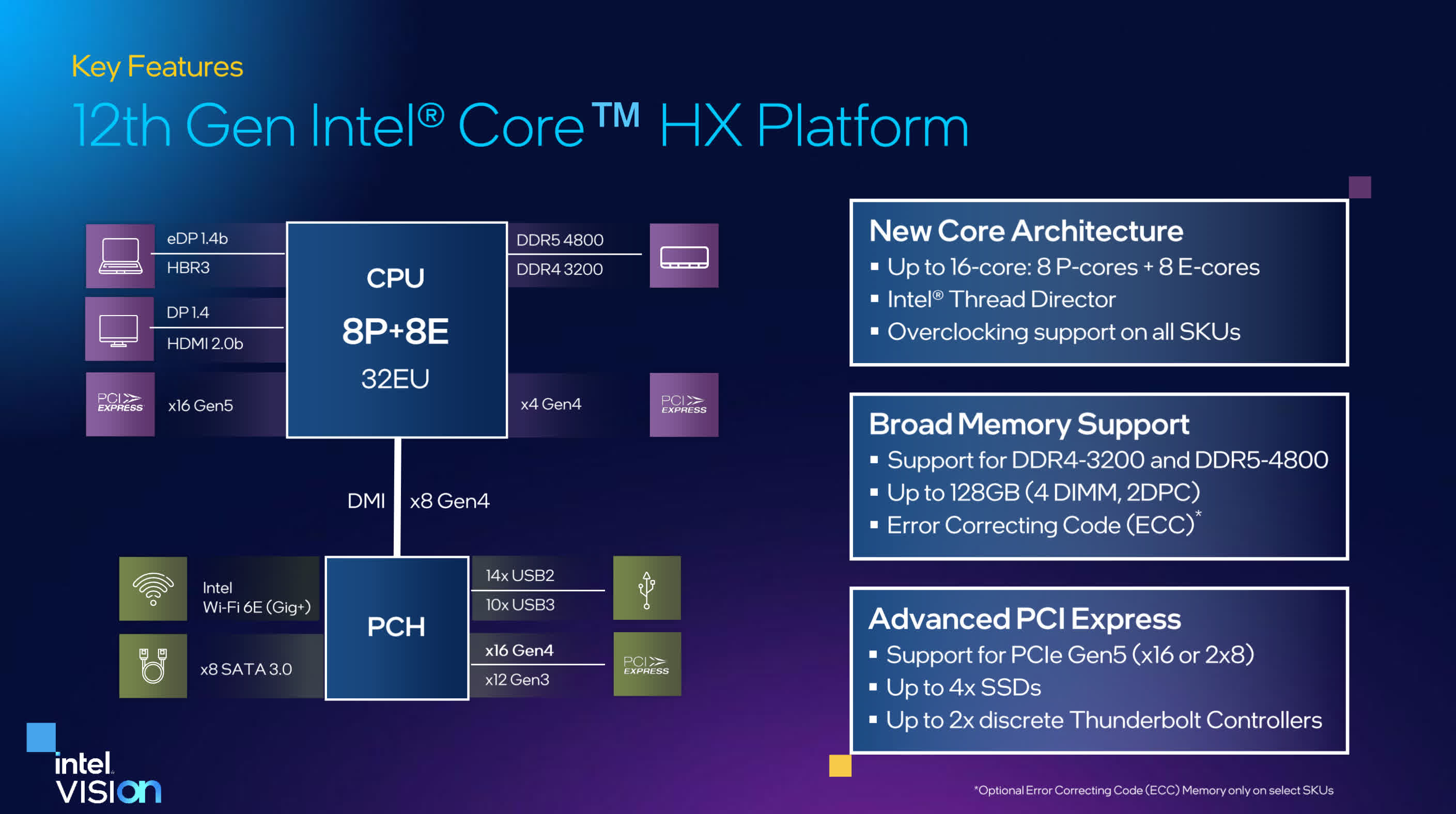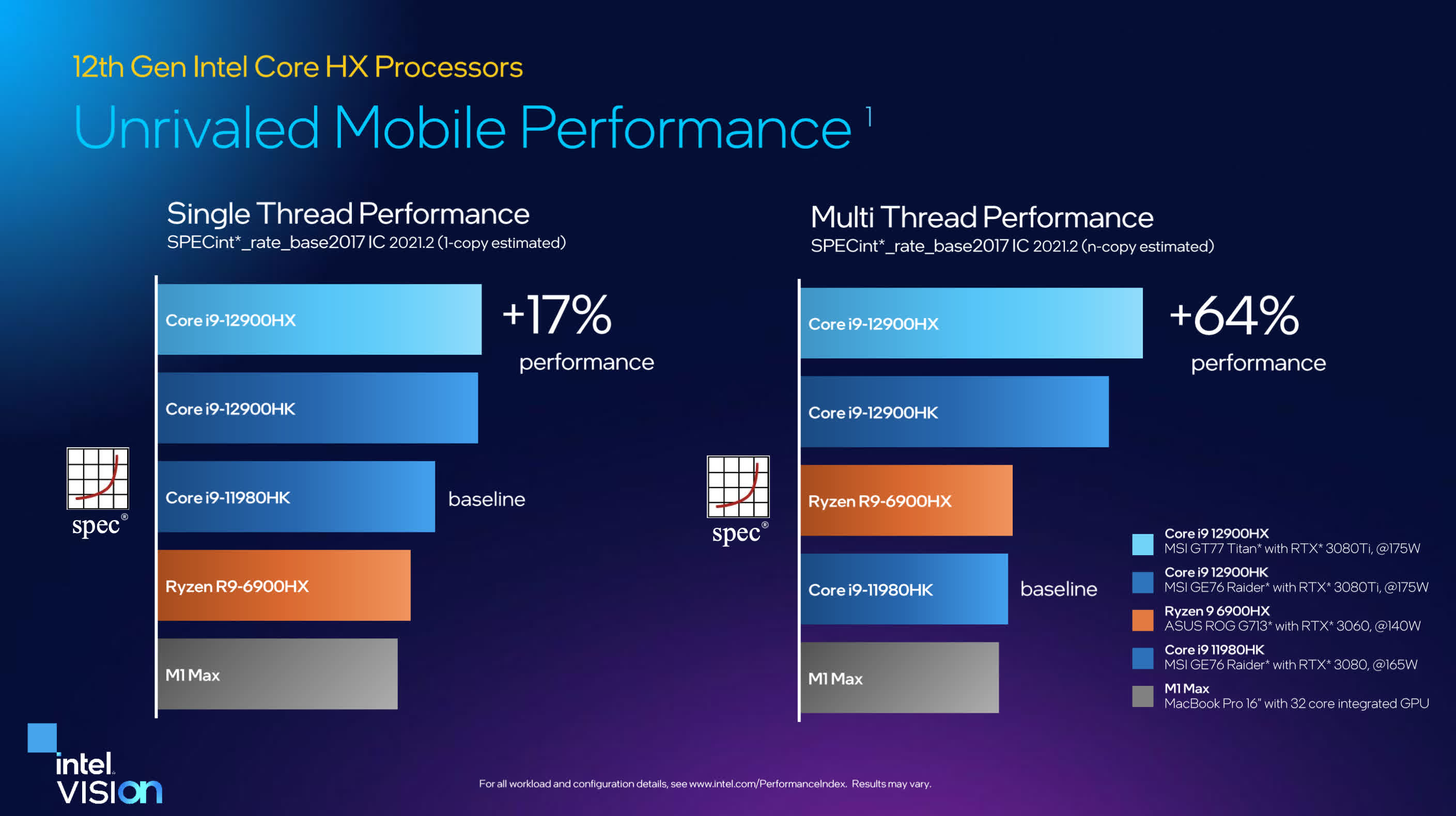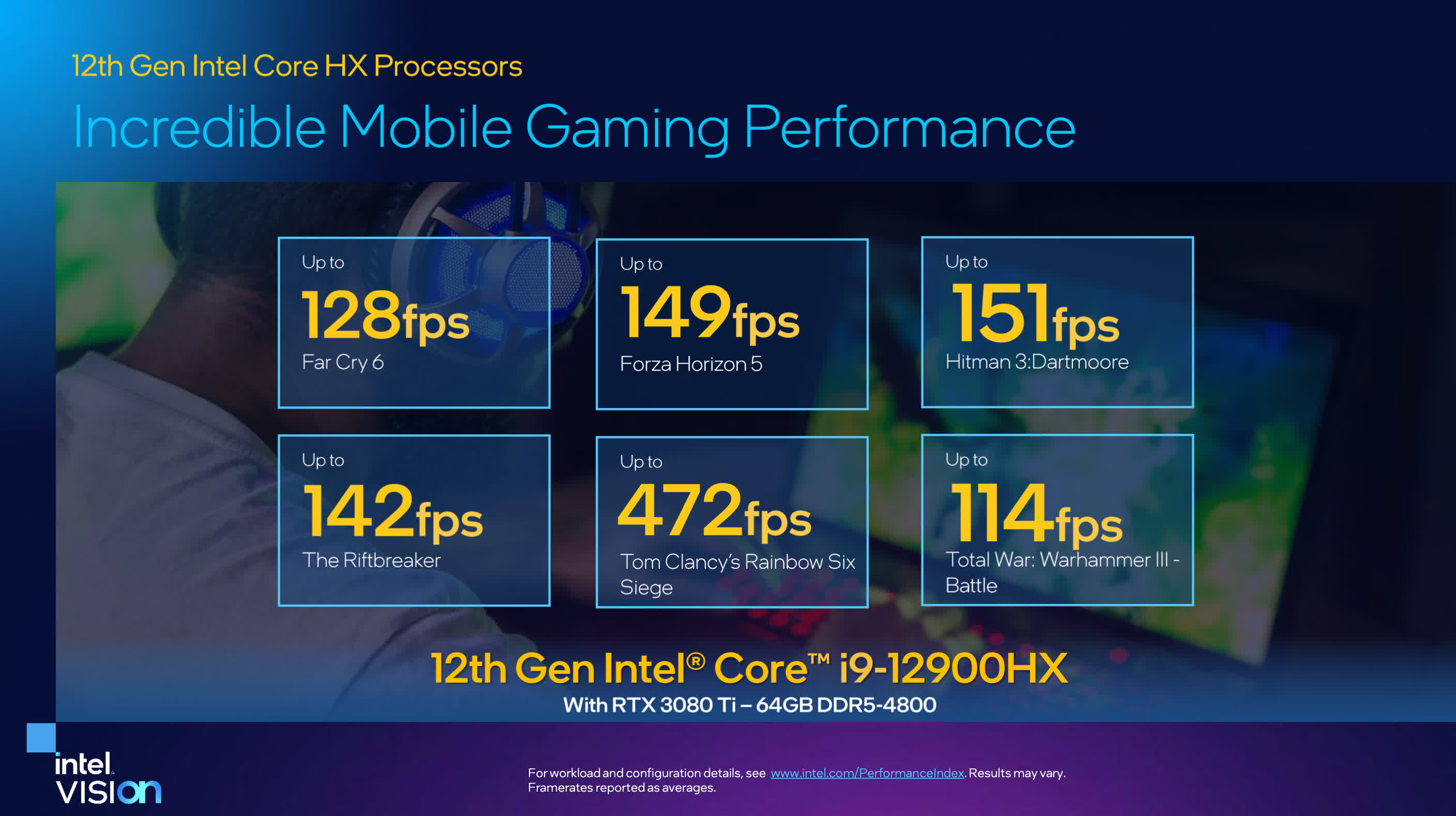In brief: Intel says it saved the best of the Alder Lake family for last, so today, it introduced seven Alder Lake-HX series CPUs for workstation-grade laptops. These won't be the fastest mobile CPUs for gaming. Still, they extend the H-series lineup with ample support for the latest memory, PCIe, and connectivity standards, not to mention overclocking.
Intel's Vision 2022 event is in full swing, and the company used the occasion to reveal its enthusiast-grade 12th-gen CPUs for laptops. Make no mistake --- these are desktop Alder Lake processors crammed into mobile packages, and they're as power-hungry as you'd expect. Intel's senior director of mobile product marketing for the Client Computing Division, Daniel Rogers, confirmed these are essentially Alder Lake-S CPUs without a heat spreader and integrated into laptop-friendly BGA packages.
All seven CPUs introduced today are part of the HX line, and they feature up to 16 cores and 24 threads with peak boost clocks of up to 5 GHz and a base power of 55 watts. As we learned from a recent leak, these new Core i5, Core i7, and Core i9 mobile parts will draw up to 157 watts under load, so expect to find these in thick laptops with beefy cooling systems and heavy power bricks.
The new processors use the same silicon as their desktop counterparts, so their integrated Xe LP graphics engines have 32 execution units (except the Core i5-12450HX, which has only 16). It's also worth noting the Core i9-12900HX, Core i7-12850HX, and Core i5-12600HX are eligible for Intel's vPro management platform, making them ideal for workstations used in a corporate environment.
Memory support is pretty robust as OEMs will be able to integrate up to 128 gigabytes of it in their designs. They'll also have plenty of options, including DDR5 running at 4,800 MHz, LPDDR5 at 5,200 MHz, LPDDR4 at 4,267 MHz, and DDR4 running at 3,200 MHz. The Core i9-12900HX, Core i7-12850HX, and Core i5-12600HX models are compatible with ECC memory.
There's also support for x16 PCIe 5.0 (or two x8 connections) and four lanes of PCIe 4.0 built into the new CPUs. A dedicated platform controller hub (PCH) extends that with an additional 16 lanes of PCIe 4.0 and 12 lanes of PCIe 3.0, allowing for up to four speedy PCIe 4.0 SSDs. Manufacturers can also equip their laptops with high-end Wi-Fi 6E connectivity solutions and two Thunderbolt controllers.
Intel says the Core i9-12900HX and the Core i7-12800HX support both memory and core overclocking, while the rest of the lineup only comes with memory overclocking capabilities. What this means is that all new CPUs support Intel's XMP 3.0 profiles and Dynamic Memory Boost, while the two models mentioned above support independent overclocking of performance and efficiency cores.
The new Alder Lake HX-series CPUs seem to be all about squeezing as much compute power as possible without burning a hole through your laptop. Intel's marketing charts highlight areas where it believes the new CPUs are faster than their Tiger Lake predecessors, AMD's Ryzen 6000 series, and Apple's gargantuan M1 Max chipset. Intel didn't go into specifics regarding the supposed lead over the competition. However, it claimed a 17-percent performance uplift in single-threaded workloads and 64 percent in multi-threaded tasks over Tiger Lake.
Since these are targeted mainly at workstation-grade laptops, Intel also showcased significant performance improvements over 11th-gen Core processors in a variety of professional workloads.
The company also provided a quick overview of gaming performance. For now, we'll have to take Intel's word for it, but it doesn't look like the new CPU series will disappoint. However, the company did note that H-series Alder Lake CPUs will remain the fastest mobile processors for gaming for a while yet, so in terms of performance-per-dollar, you may want to opt for a laptop with Alder Lake-H.
Several laptop models from companies like HP, Lenovo, Dell, MSI, and Gigabyte will be coming equipped with Alder Lake-HX CPUs. They include the HP Omen 17, MSI's GT77 Titan and GE76 Raider, the Dell Precision 7670, Asus' ROG Strix Scar 17 SE, the Lenovo Legion 7i, and Gigabyte's Aorus 17X.
